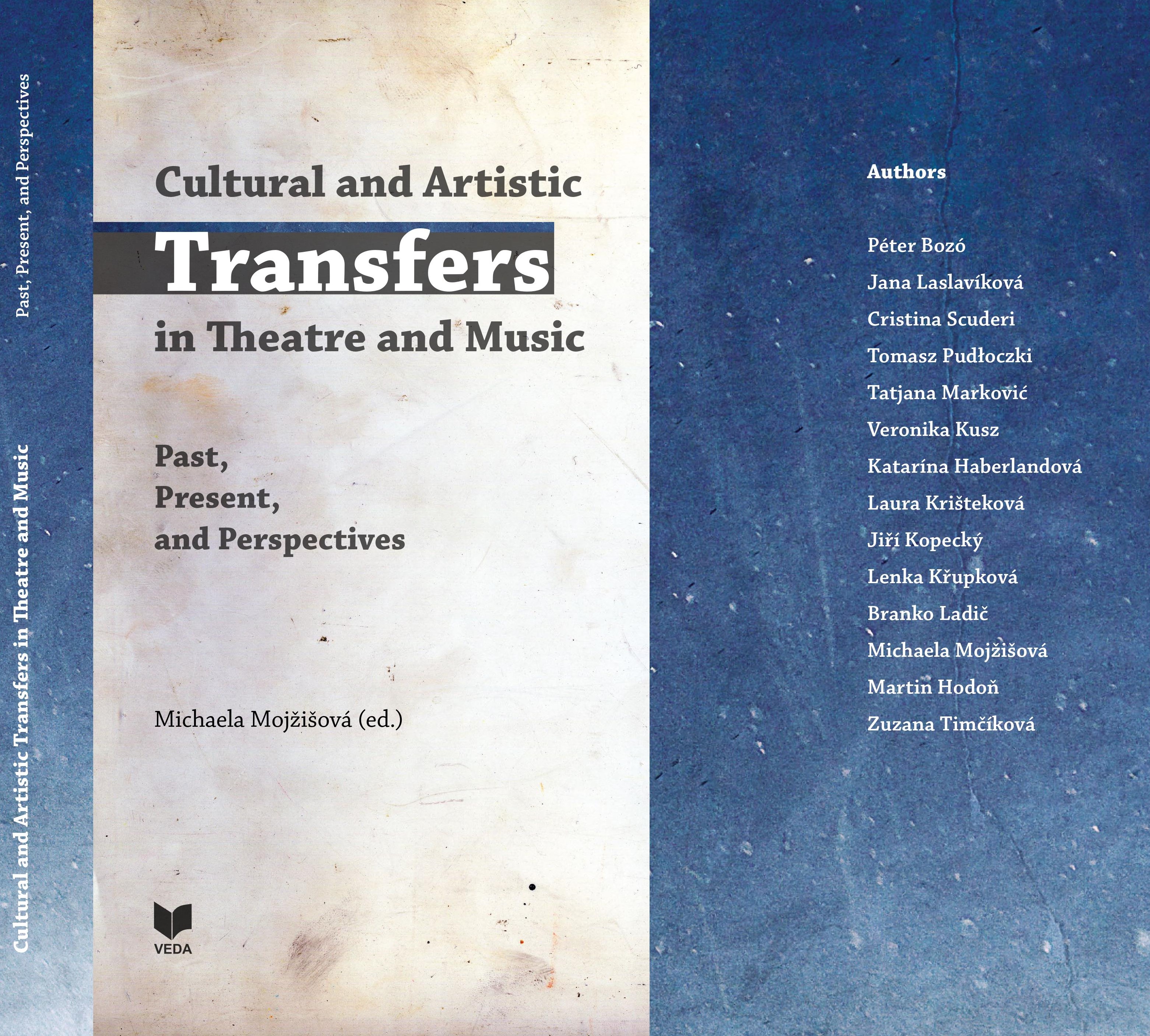Michaela Mojžišová ed.
Cultural and Artistic Transfers in Theatre and Music: Past, Present, and Perspectives
Art Research Centre of the Slovak Academy of Sciences Institute of Theatre and Film Research, VEDA Publishing House of the Slovak Academy of Sciences
Published: 14. 9. 2021
Content:
Editorial Note, strany: 7-11 Full text
The Impact of European Theatre on Slovak Opera Staging Practice, strany: 204-223 Full text
A Theatre of Visual Excellence, strany: 241-260 Full text
Details:
268 pages
Language: English
About edition:
Publishers: Art Research Centre of the Slovak Academy of Sciences Institute of Theatre and Film Research, VEDA Publishing House of the Slovak Academy of Sciences
Edition: 1.
Edition place: Bratislava
Edition year: 2021
ISBN 978-80-224-1911-6 (print)
Book type: edited book
Public license:
Creative Commons Attribution-NonCommercial 4.0 International Public License (CC BY-NC 4.0)
How to cite:
ISO 690:
Mojžišová, M. ed.: Cultural and Artistic Transfers in Theatre and Music: Past, Present, and Perspectives. 1 vyd. Bratislava : Art Research Centre of the Slovak Academy of Sciences Institute of Theatre and Film Research, VEDA Publishing House of the Slovak Academy of Sciences. 2021. pp. 268. ISBN 978-80-224-1911-6.
APA:
Mojžišová, M ed. (2021). Cultural and Artistic Transfers in Theatre and Music: Past, Present, and Perspectives. Bratislava : Art Research Centre of the Slovak Academy of Sciences Institute of Theatre and Film Research, VEDA Publishing House of the Slovak Academy of Sciences. ISBN 978-80-224-1911-6.






